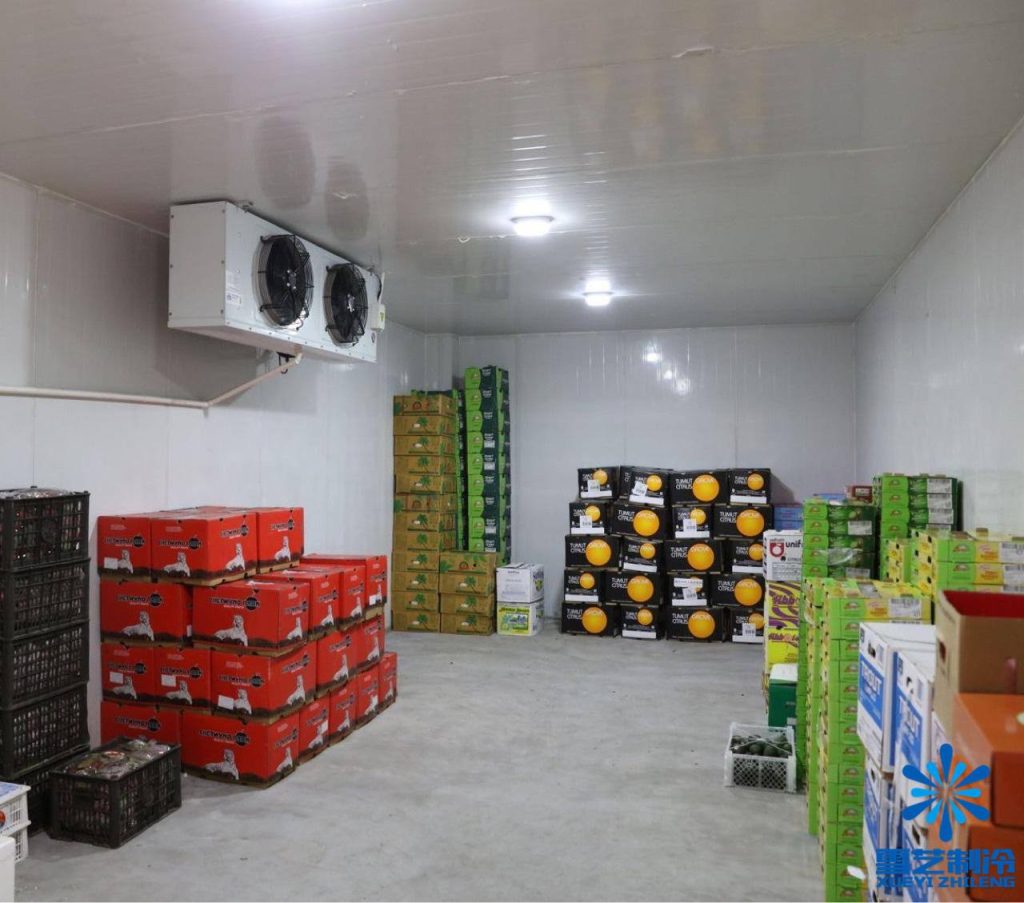Foods that are perishable such as pharmaceutical products and more at the right temperature can extend their shelf-life while increasing profitability. It can also guard your clients from food poisoning or other health risks. The process of constructing and keeping a cold storage warehouse or truck that can meet this need can be expensive and time-consuming.
Biological samples like tissue cultures blood, cells, DNA, RNA and vaccines require special cold storage conditions to preserve their integrity and strength.
Refrigerated Warehouses vs Freezers
The two most common types of cold storage warehouses are refrigerated as well as frozen. These warehouses that are refrigerated, also referred to as chill stores, keep temperatures ranging from 2 to 8 degrees Celsius to protect perishable goods against bacterial growth and losses of cold. These are ideal for the storage of fresh produce and dairy products.
Frozen warehouses, on the contrary, have lower temperatures than the temperature of -18 to 25 degrees Celsius They are great for storage of fish, meats, and frozen desserts. The frozen warehouse can also house the temperature-sensitive medicines such as vaccines, medicines, and blood plasma.

Most businesses prefer outsourcing their cold storage needs to third party logistics providers. For instance, a big restaurant chain might utilize their cold storage facilities in order to store the weekly deliveries of all of its ingredients for food until it’s appropriate to distribute it to all of its locations.
Costs of cold warehousing depend on the factors that determine location, size, duration of storage and other services required. It’s essential to choose the right facility close to transport hubs so that you can streamline logistics and reduce travel times.
Cold Storage Facilities for Perishable Goods
Cold storage facilities allow businesses the possibility of extending the shelf life of perishable items and avoid losing inventory. They house and transport temperature-sensitive products, such as food, chemicals, pharmaceuticals, cosmetics and other commodities.
Cold stores make sure that perishable goods are kept healthy, safe, and fresh for the consumers. They provide a complete solution for managing wholesale merchandise and help to keep track of inventory.
To prevent contamination and product spoilage, cold storage warehouses should adhere to strict safety standards. They must have fire-proof security measures, emergency power backup systems including security cameras as well as restricted access for unauthorized personnel. Also, they should have a variety of automated technologies to simplify operations as well as increase the efficiency and accuracy. The most common are automated storage and retrieval systems, robotic palletizing, and sorting systems. Furthermore, cold stores must be eco-friendly and incorporate green technologies like solar panels and wind turbines to reduce environmental impacts and decrease operating costs. They should also explore blockchain technology for improved visibility, traceability, and accountability to all parties.
Temperature Sensitive Goods Storage
Certain medicines need a certain ambient temperature to store and ship It is essential that this air be maintained even when the product is at temperature that is not ambient. Medicinal items that don’t get adequate care could suffer in effectiveness or quality, that can impact their effectiveness as well as safety once they get to patients.
Temperature controlled warehouses can help prevent these issues by providing insulated and temperature-controlled areas for perishable goods, including pharmaceuticals. These facilities also include alarm systems that notify staff when the product gets into the danger zone to take the necessary steps immediately, before it’s far.
For time-critical shipments that require a time-sensitive delivery, the cold chain logistics process may involve several legs (and transportation methods). For this reason, it’s essential that the facilities during the process provide temperatures control options, as well. This ensures that the products remain safe, cool and unbroken throughout their journey from the manufacturing facility to the ultimate customer. Theft or damage can also wreak havoc on temperature-sensitive goods, so proper security and insurance are crucial.
Benefits of Refrigerated Warehouses and Freezers
Food and medical industry depend on cold storage facilities to ensure the freshness, quality, and safety of their products. They have sophisticated refrigeration systems that create specific temperatures and regulate. They also provide value-added options like consolidation and repackaging to help their customers save cost of shipping.
Food waste is a major worry in the food sector. The good news is that thiet ke lap dat kho lanh warehouses will help in reducing the quantity of food that is wasted by managing inventory on a first-in, the first-out (FIFO) system.
In the case of a warehouse, for instance, one with automated cranes can store larger quantities of food items in the same area as an operation that is manually operated. This means less energy is used per square foot, as well as it’s easier to monitor inventory. This is a fantastic option to lower consumption costs of food, and also reduce consumption in the business world where profit margins are tight. There are other benefits, including a lower space footprint for buildings since cold storage facilities can be placed closer to the produce market or processing plants for food.
